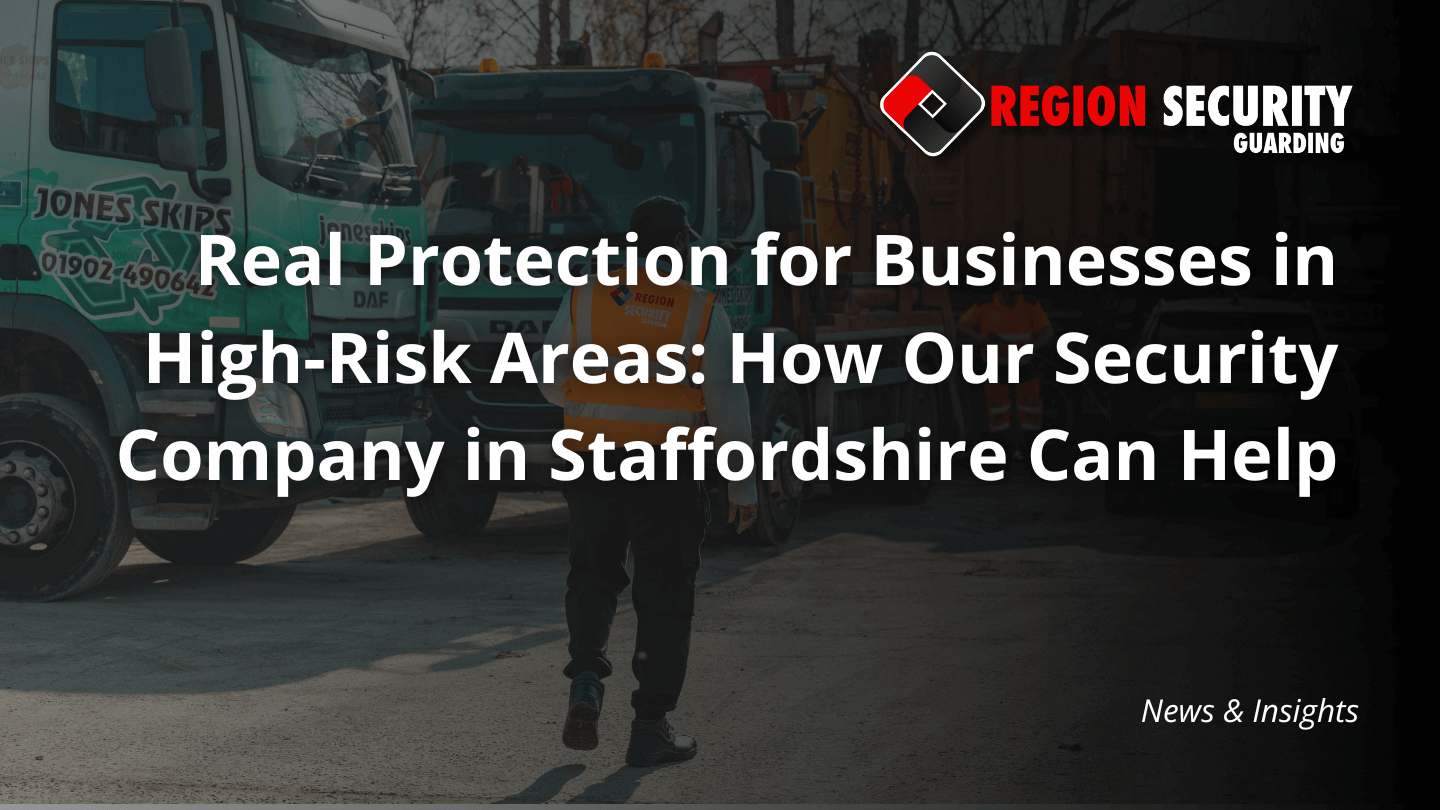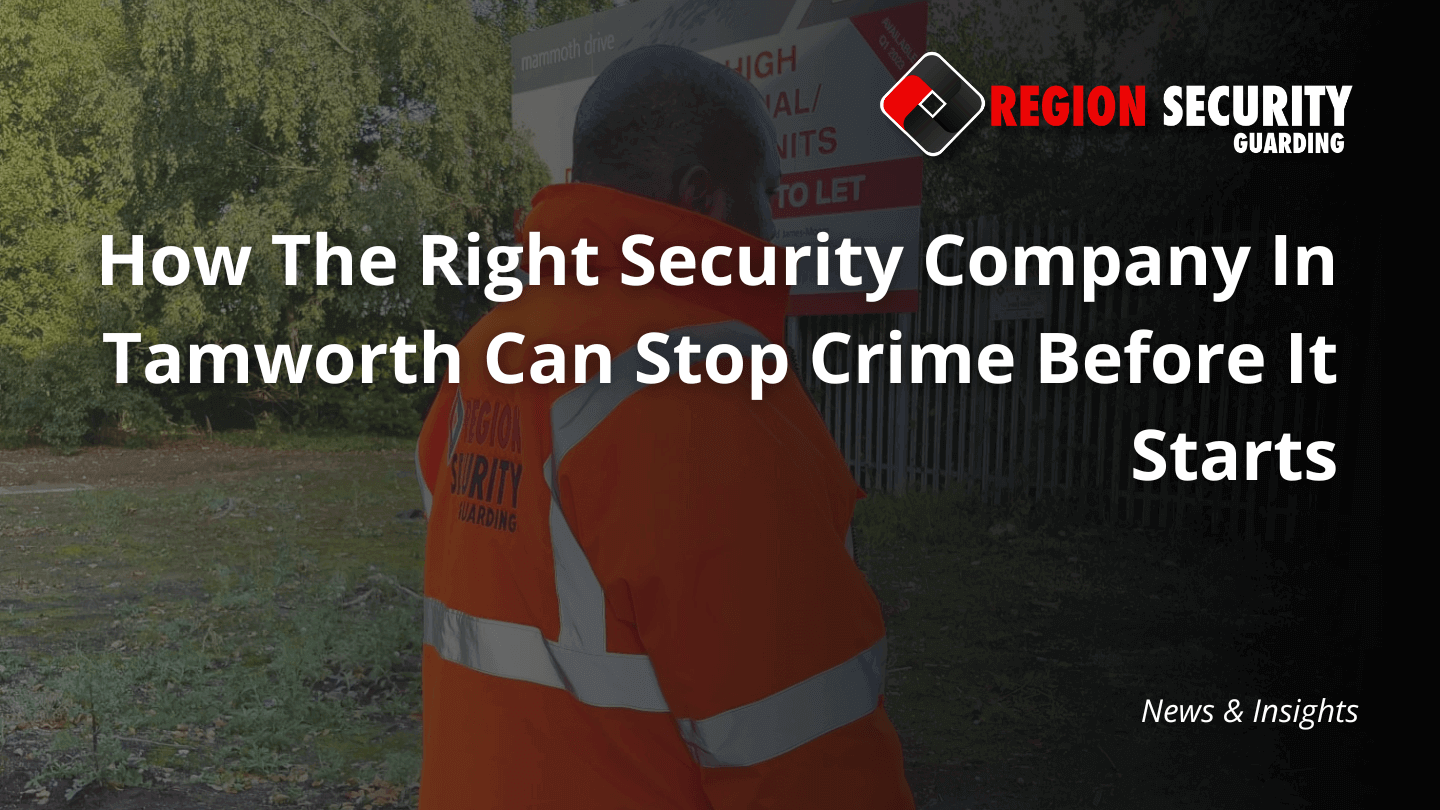On World Mental Health Day, it’s essential to shine a spotlight on the mental health challenges faced by security professionals. Security work often comes with high levels of stress, from verbal abuse to physical threats, and this can take a toll on mental well-being. A 2020 University of Portsmouth study found that nearly 40% of security guards show symptoms of Post-Traumatic Stress Disorder (PTSD), largely due to repeated exposure to hostile environments.
At Region Security Guarding, we recognise that mental well-being is just as important as physical safety, and today is an opportunity to explore how security professionals can better support their mental health – and how the industry can help.
Table of Contents

Challenges Faced by Security Professionals
The nature of security work exposes professionals to numerous stressors:
- Verbal abuse: Over 64% of security professionals report being verbally abused at least once a month.
- Threats of violence: Almost 43% regularly face threats of violence, contributing to anxiety, stress, and burnout.
- Physical assault: More than 30% of security guards have been physically assaulted while on duty.
Despite these challenges, the Security Journal UK has pointed out that there is a concerning lack of published research on mental health within the UK security industry.

Stigma and the Fear of Reporting Mental Health Issues
One of the biggest barriers to addressing mental health in the security industry is the fear that speaking up could jeopardise your job or your SIA licence. Many security professionals feel that admitting to mental health struggles might be seen as a weakness, or worse, could lead to losing their employment.
However, it’s important to know that this fear is often based on misunderstanding. The SIA generally does not refuse a licence due to mental health conditions unless the applicant has been detained under the Mental Health Act in the past five years. Most importantly, asking for support is not a sign of weakness – it’s a step towards maintaining your health and staying at your best on the job.
Employers are increasingly recognising that mental health is part of overall well-being and want their employees to be fit both mentally and physically. In fact, seeking help early can often improve your job performance and reduce the risk of burnout.
If you’re concerned, talk to your HR department or manager about the resources available to you, and know that your mental health is just as important as your physical health. Being proactive about your well-being makes you a stronger, more resilient security professional.
What Can Employers Do?
Security companies can take several steps to support the mental health of their employees:
- Provide Mental Health Resources: Employers should offer confidential services such as Employee Assistance Programmes (EAPs) and access to external counselling. These resources ensure that employees can seek help when they need it.
- Encourage a Culture of Openness: Promoting regular discussions around mental health can help reduce stigma. Employers can offer mental health awareness training, making it easier for employees to identify and address issues early.
- Promote Work-Life Balance: Security professionals often work long and irregular hours. Ensuring that employees take breaks, have proper time off, and maintain a healthy work-life balance is essential to their mental well-being.
- Reassure Employees About Licensing: Employers should clarify that seeking mental health support does not automatically impact SIA licensing. This assurance could encourage more employees to come forward with their mental health concerns.
What Can Security Professionals Do?
Security professionals can take steps to protect their mental health:
- Recognise the Signs of Stress: Feeling overwhelmed, burnt out, or anxious are all signs that your mental health might need attention. Identifying these early signs can prevent further deterioration.
- Prioritise Breaks: Take short breaks during shifts to reduce mental strain and allow yourself time to refocus.
- Maintain a Healthy Lifestyle: Regular physical activity, balanced meals, and staying hydrated can have a significant positive impact on mental health. Incorporating exercise into your daily routine – even simple activities like walking – can improve mood and reduce stress. Running on Empty is a movement dedicated to empowering individuals in the security industry to enhance their mental health through the transformative power of running.
- Practice Meditation and Mindfulness: Incorporating mindfulness and meditation practices into your routine can help reduce stress, increase focus, and improve overall mental well-being. Apps like Headspace and Calm offer guided meditations and mindfulness exercises specifically designed to manage stress and anxiety. Even a few minutes of meditation a day can help lower stress and improve resilience.
- Reach Out for Help: If you’re struggling, don’t hesitate to seek professional help. Services such as The Samaritans (Call 116 123 or email jo@samaritans.org) are available 24/7 for confidential support. You can also contact Mind for mental health advice and resources.
- Build a Support Network: Whether through colleagues, friends, or family, surrounding yourself with supportive people can help alleviate feelings of isolation and reduce stress.

Conclusion: Supporting Mental Health on World Mental Health Day
This World Mental Health Day is a reminder of the importance of mental health in the security industry. With both employers and employees working together to create more supportive environments, we can ensure that security professionals receive the help they need to manage the pressures of their work.
If you or someone you know needs support, organisations like Samaritans (Call 116 123 or email jo@samaritans.org) and Mind are there to offer help. Don’t hesitate to reach out – mental health is just as important as physical well-being.




